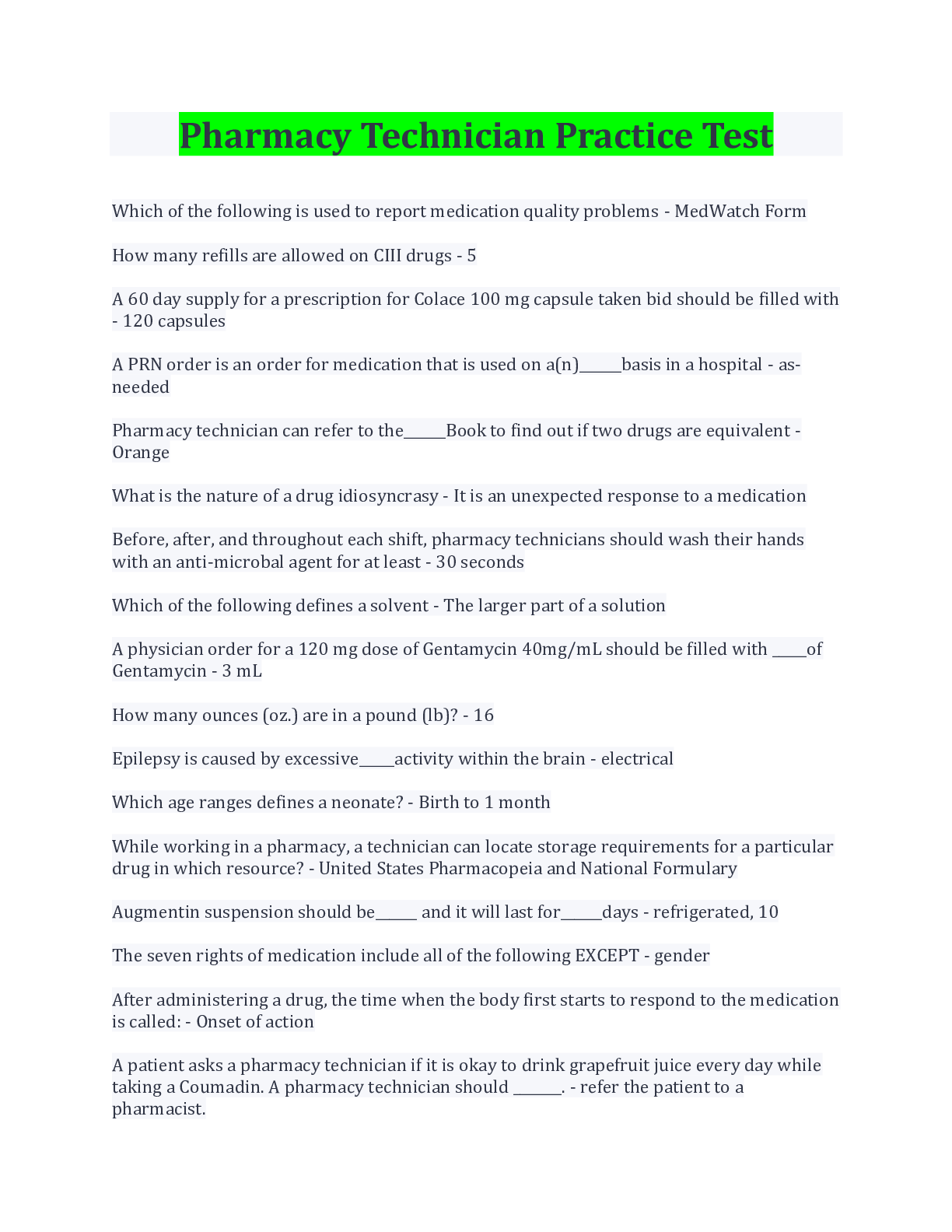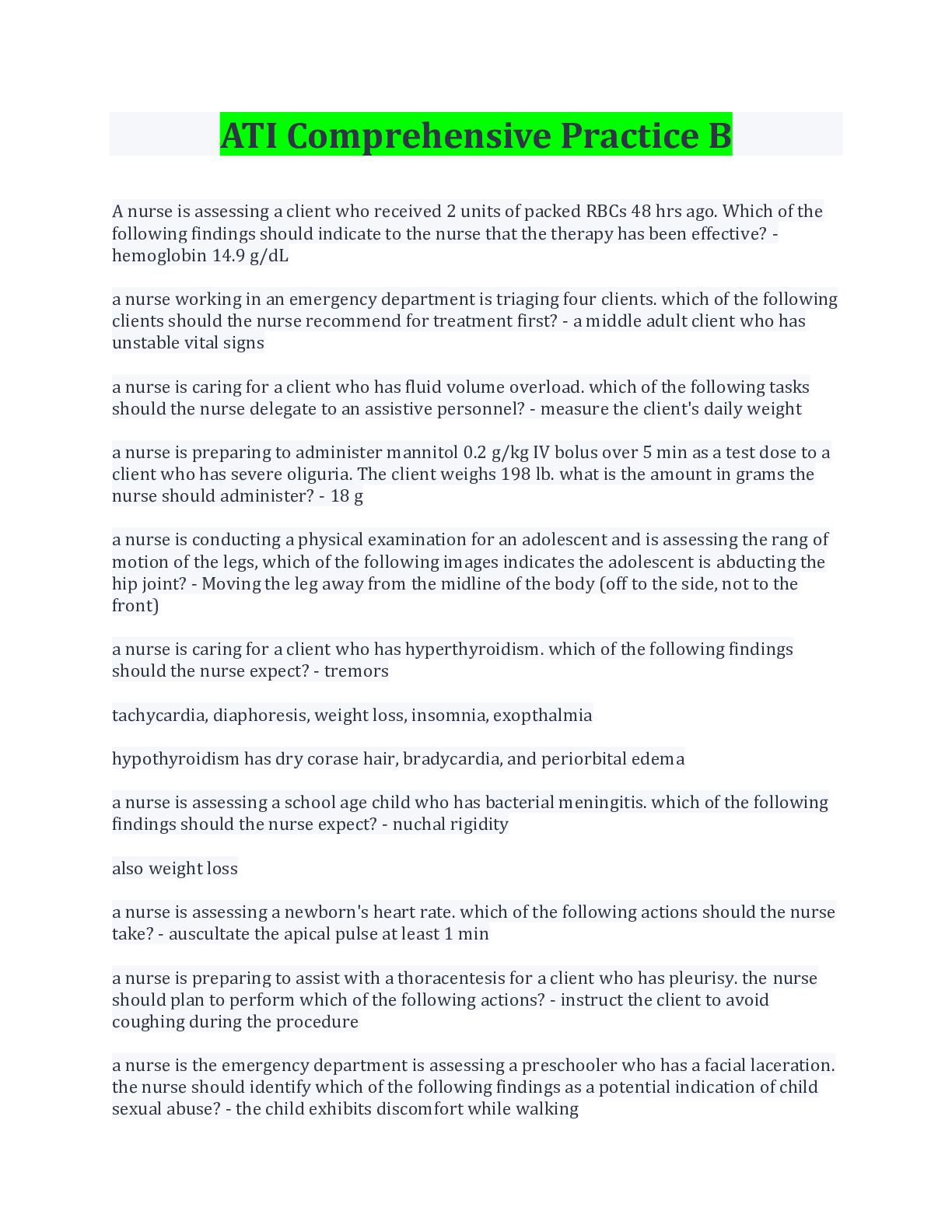ATI TEAS 7 PRACTICE QUESTIONS AND ANSWERS( Latest A+Guide Solution
Document Content and Description Below
1) Chemical bonding – a. Uses electrons that are closest to the nucleus of the atoms bonding b. Always uses electrons from only of the atoms involved c. Uses all the electrons in all atoms involv... ed d. Uses the valence electrons of all the atoms involved 2) Which of the following would have the most dramatic effect in changing the reaction rate? a. Decreasing the temperature by two-fold b. Increasing the pressure by two-fold c. Decreasing the activation energy by three-fold d. Decreasing the concentration of reactants by two-fold 3) Group one in the periodic table has valence electrons and is reactive than Group two. a. Zero; more b. Zero;less c. One;less d. One;more 4) Enzymes are created from amino acid chains. As such, what might prevent the action of an enzyme? a. A pH close to 7 b. A high temperature c. The lack of hydrogen ions in solution d. A lack of ATP in the cell 5) If a scientists want to determine the rate at which an enzyme works, what could he or she measure? a. The rate at which the enzyme is degraded b. The rate at which the product disappears c. The rate at which the reactants disappear d. The rate at which the products appears 6) The rate of a chemical reaction depends on all of the following except a. Surface area b. Temperature c. Presence of catalysts d. Amount of mass lost 7) Which of the answer choices provided best defines the following statement? For a given mass and constant temperature, an inverse relationship exists between the volume and pressure of a gas? a. Boyle’s Law b. Ideal Gas Law c. Charles’ Law d. Stefan-Boltzmann Law 8) Prokaryotic and eukaryotic cells are similar in having which of the following? a. Integral membrane proteins in the plasma membrane b. Presence of a nucleus c. Membrane-bound organelles d. Protein-studded DNA 9) Blood cells that are responsible for transportation of oxygen are called a. Leukocytes b. Thrombocyte s c. Erythrocytes d. Plasma cells 10) What is another name for the Adam’s Apple? a. Vocal box b. Thyroid cartilage c. Cricoid cartilage d. Hyoid bone 11) When exhaling, the diaphragm a. Relaxes b. Contracts c. Moves down and in d. Stays in the same position 12)Which of the following correctly lists the cellular hierarchy from the simplest to most complex structure? a. Tissue, cell, organ, organ system, organism b. Organism, organ system, organ, tissue, cell c. Organ [Show More]
Last updated: 2 years ago
Preview 1 out of 48 pages

Buy this document to get the full access instantly
Instant Download Access after purchase
Buy NowInstant download
We Accept:

Reviews( 0 )
$10.00
Can't find what you want? Try our AI powered Search
Document information
Connected school, study & course
About the document
Uploaded On
Oct 18, 2022
Number of pages
48
Written in
Additional information
This document has been written for:
Uploaded
Oct 18, 2022
Downloads
0
Views
64


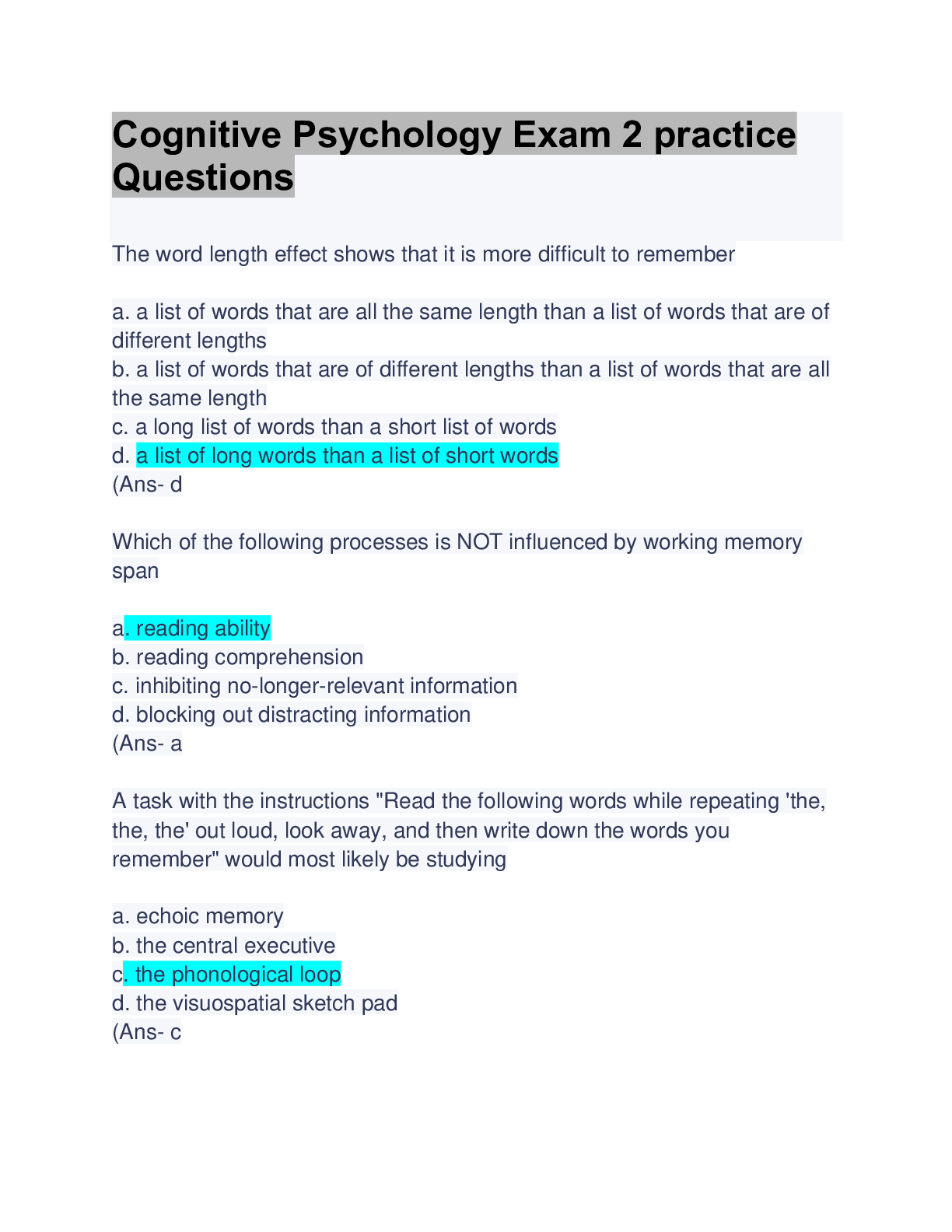
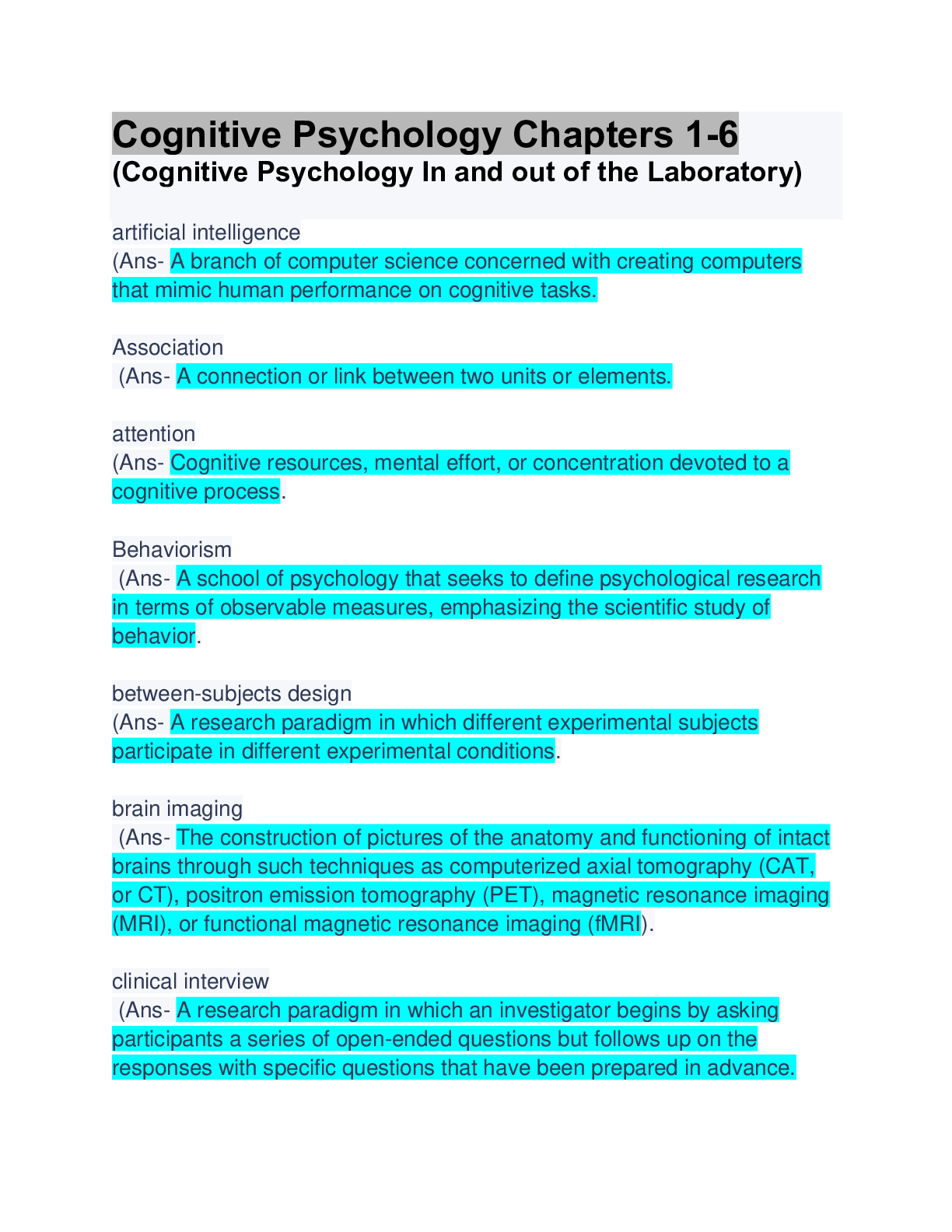
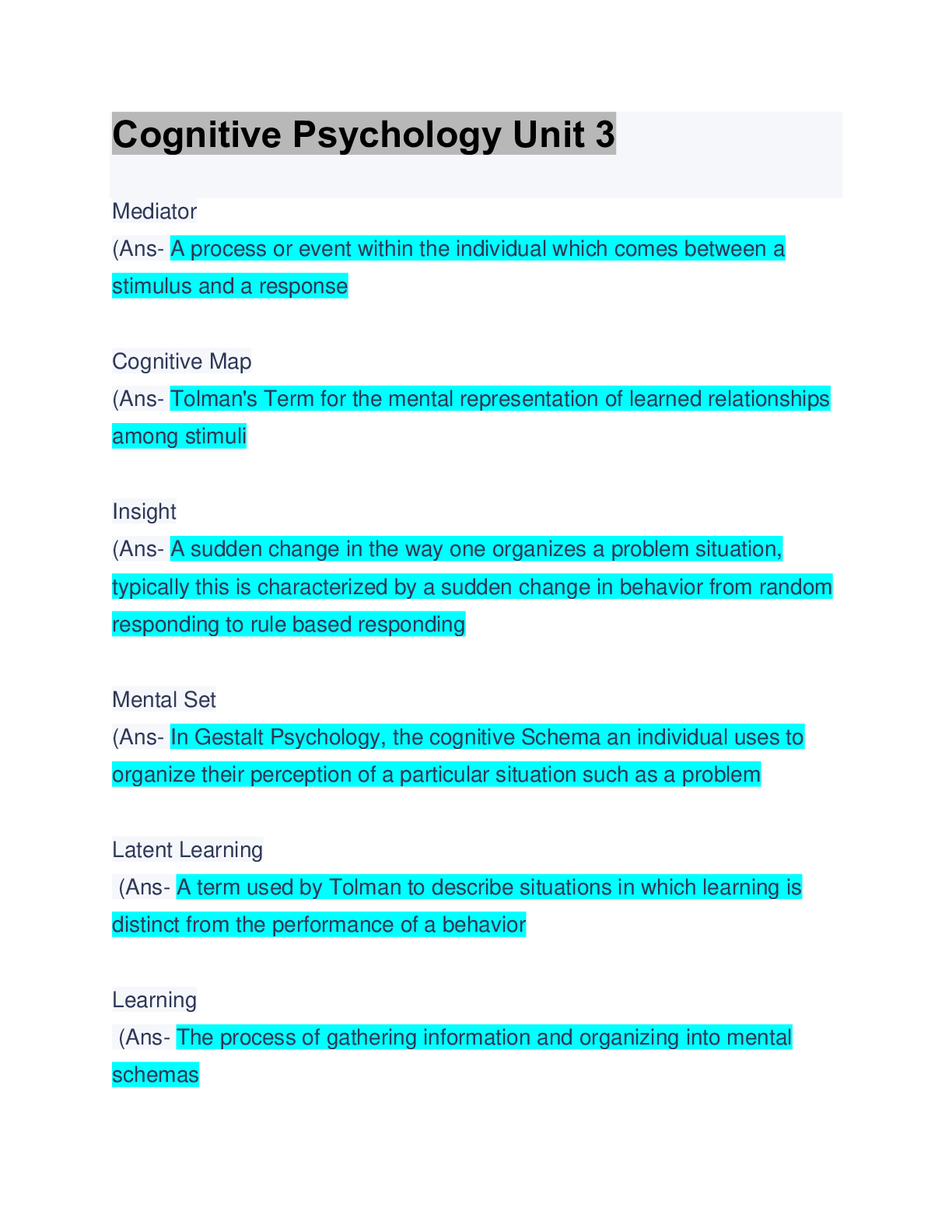



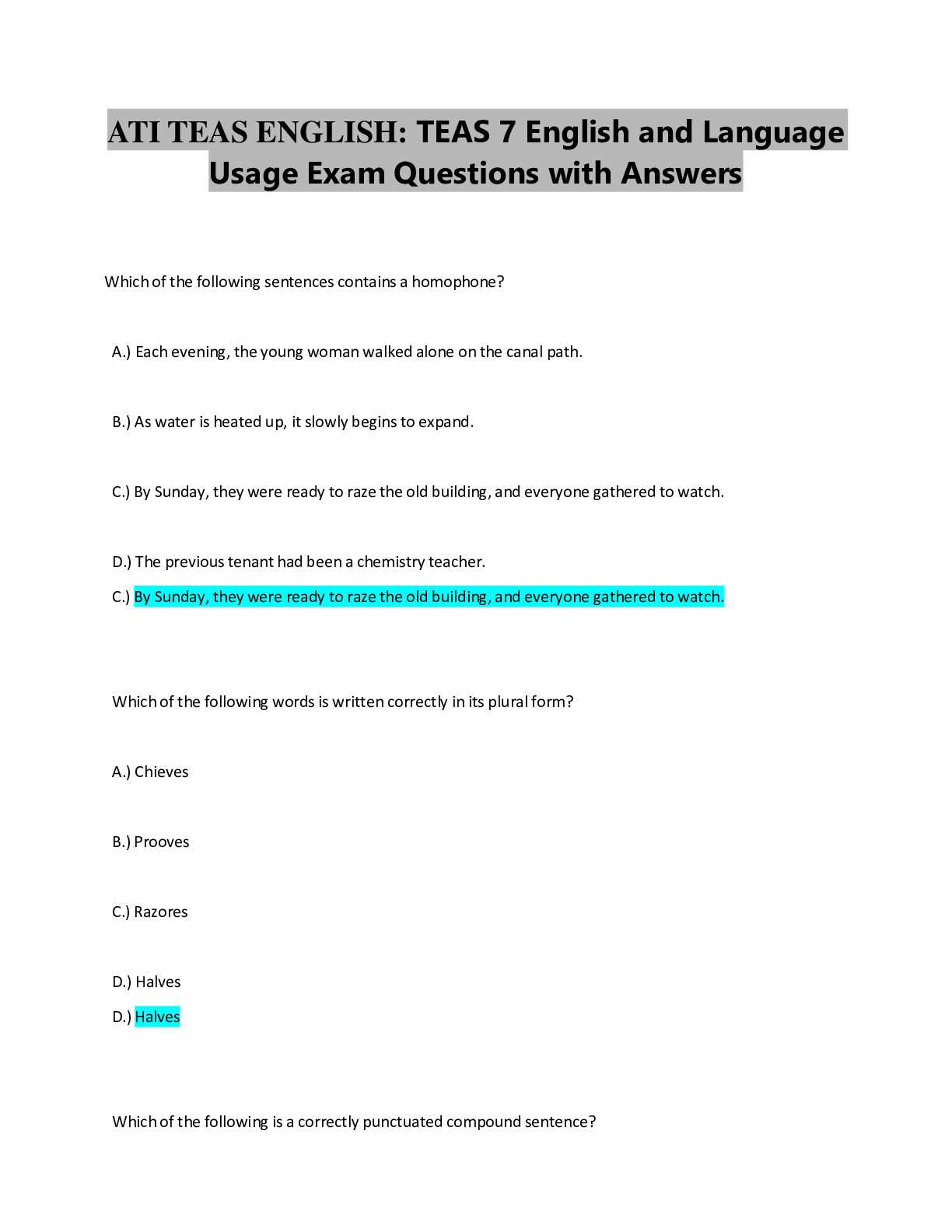




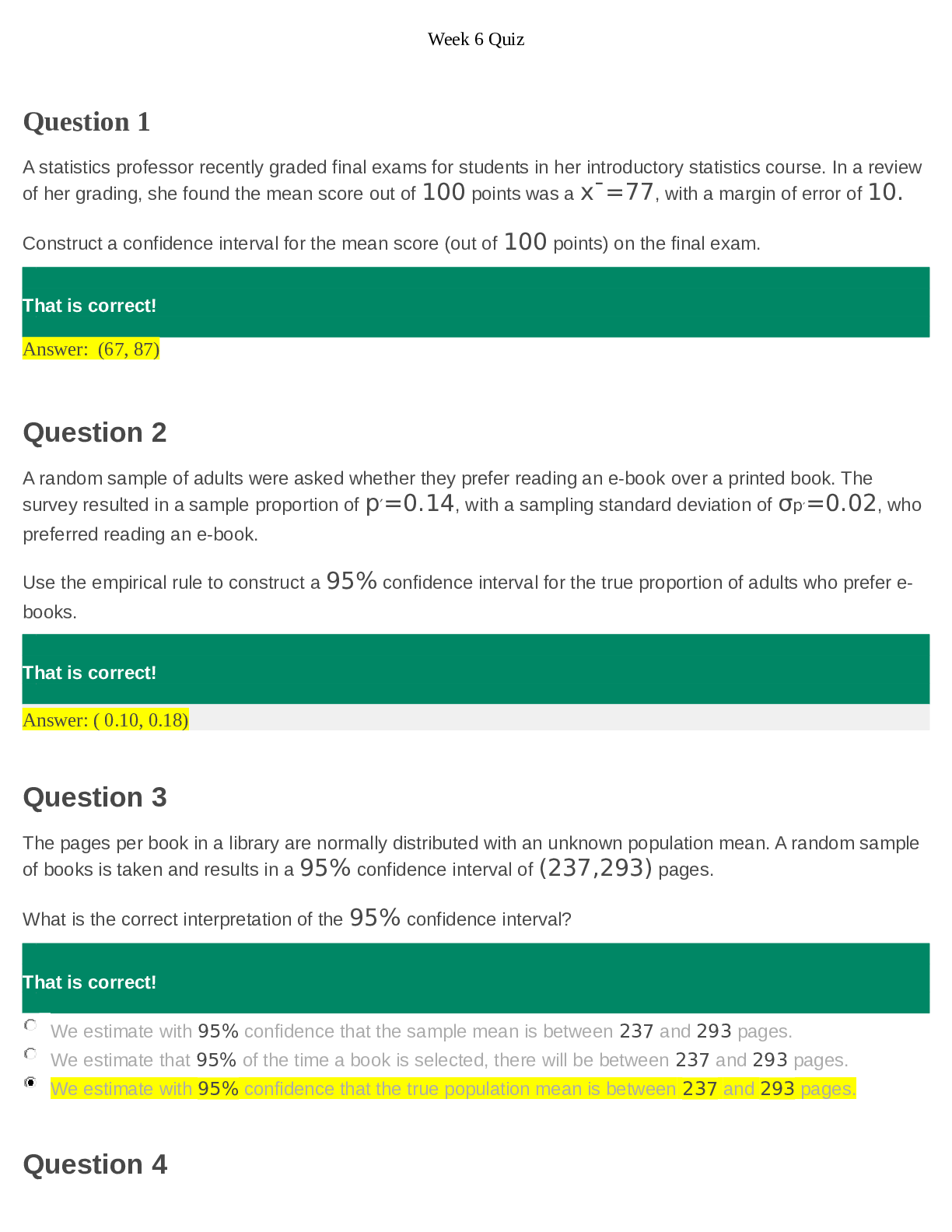
.png)







